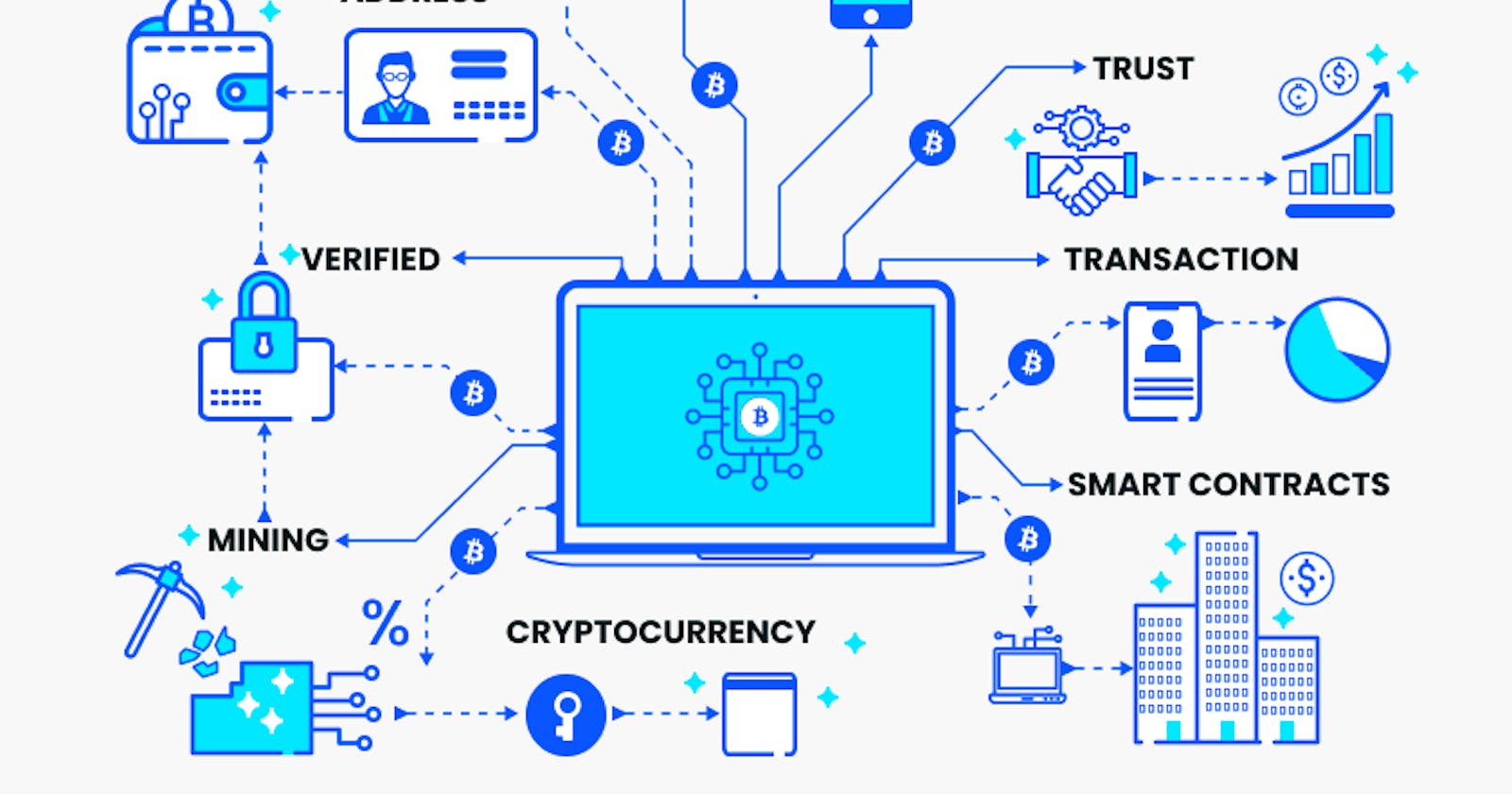Table of contents
Exploring the Benefits and Real-World Applications of Blockchain Technology
Blockchain technology is a distributed ledger system that allows for secure and transparent transactions without the need for intermediaries. It has been around for over a decade, but it has only recently gained mainstream attention due to the surge of cryptocurrencies. However, the potential uses of blockchain extend far beyond cryptocurrencies. In this blog post, we will explore why blockchain technology is needed right now.
- Decentralization
The current centralized systems have some fundamental problems that have been exposed in recent times. We have seen how centralized entities can abuse their power, and how data breaches have become all too common. Blockchain offers a solution to this problem by providing a decentralized system that is not controlled by any single entity. This means that there is no central point of failure, and it is much harder for bad actors to manipulate the system.
- Security
Blockchain technology offers a high level of security due to its decentralized nature. Every transaction on the blockchain is encrypted and verified by a network of nodes. Once a transaction is verified, it cannot be altered or deleted, making it extremely secure. This makes blockchain technology ideal for applications that require a high level of security, such as financial transactions, supply chain management, and medical records.
- Transparency
One of the biggest advantages of blockchain technology is its transparency. Every transaction on the blockchain is visible to anyone who has access to the network, making it a highly transparent system. This level of transparency is especially important in industries where accountability and transparency are critical, such as government, finance, and healthcare.
- Efficiency
Blockchain technology is highly efficient due to its decentralized nature. Transactions are processed much faster than traditional methods, and the need for intermediaries is eliminated. This not only speeds up the transaction process but also reduces costs. It also reduces the risk of errors and fraud, making it an ideal solution for industries that require accuracy and speed, such as supply chain management.
- Trust
Trust is a critical component of any transaction, and blockchain technology offers a high level of trust. Because the system is decentralized and transparent, there is no need for intermediaries, and trust is built directly between the parties involved. This makes blockchain technology an ideal solution for industries where trust is critical, such as banking and finance.
Usecases :
- Financial Services
Blockchain technology can be used in financial services to create a more secure, efficient, and transparent system. For example, it can be used for cross-border payments, where traditional methods can be slow and expensive. Blockchain-based solutions can facilitate real-time and low-cost transactions, allowing for faster and cheaper transfers of funds. One example of this is Ripple, which uses blockchain technology to provide global payments that are fast, secure, and inexpensive.
- Supply Chain Management
Supply chain management involves tracking products from their origin to their final destination. Blockchain technology can be used to create a more efficient and transparent system, which can help reduce fraud, waste, and delays. By using blockchain technology, the supply chain can be tracked from start to finish, allowing for increased transparency and accountability. One example of this is IBM's Food Trust, which uses blockchain technology to track the origin and journey of food products, increasing food safety and quality.
- Healthcare
Blockchain technology can be used in healthcare to create a more secure and transparent system for storing medical records. Medical records contain sensitive information, and traditional systems can be vulnerable to data breaches. By using blockchain technology, medical records can be stored in a secure and decentralized manner, where only authorized personnel can access them. One example of this is MedRec, which uses blockchain technology to store and share medical records in a secure and transparent way.
- Identity Management
Identity management involves the secure and efficient management of personal information. Blockchain technology can be used to create a more secure and transparent system for identity management, where individuals have control over their own information. By using blockchain technology, individuals can create a digital identity that is secured by the blockchain, which can be used for various purposes such as voting, banking, and social media. One example of this is Civic, which uses blockchain technology to provide a secure and decentralized identity verification system.
- Gaming
Blockchain technology can be used in gaming to create a more fair and transparent system for players. For example, it can be used to create provably fair games, where the outcomes are determined by the blockchain, and not by the game operator. This increases trust and transparency between players and game operators, and can help reduce cheating and fraud. One example of this is the Ethereum-based game CryptoKitties, which uses blockchain technology to create unique and provably fair virtual cats.
In conclusion, blockchain technology can be applied to a wide range of use cases, from financial services to healthcare, supply chain management, identity management, and gaming. By using blockchain technology, we can create a more secure, efficient, and transparent system that benefits everyone involved.
In conclusion, blockchain technology offers a range of benefits that make it a highly desirable solution for a range of industries. Its decentralized nature, high level of security, transparency, efficiency, and trust make it an ideal solution for industries that require these qualities. As such, we can expect to see an increasing number of applications for blockchain technology in the near future.
